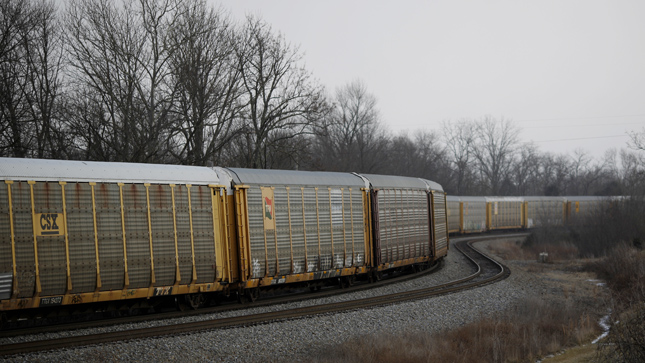A longstanding principle of common law in both the United States and the United Kingdom recognizes the value of establishing “common carriers”— that is, entities that transport goods, people or services for the benefit of the general public with an obligation not to discriminate among them. Unlike private or “contract” carriers, a common carrier operates under a license provided by a regulator, who retains authority to interpret the carrier’s obligations to the public. In the United States, railroads have long been held to this obligation to ensure fair and nondiscriminatory carriage, paired with incentives to invest in maintaining and upgrading their infrastructure.
The existing common-carrier obligation guarantees that rail providers act reasonably in dealing with their customers, striking a balance between individual customer needs and the overall efficiency of the rail network. Alas, recently introduced by Sens. Tammy Baldwin (D-Wis.
) and Roger Marshall (R-Kan. ) threatens to disrupt this balance in ways that could have adverse consequences for what is currently a functional market. The current regulatory approach has been a success story, particularly since the that permitted privately negotiated contracts between railroads and shippers.
Today, rail service largely operates under contracts negotiated in the marketplace, where railroads vie for business against each other and other modes of transportation. Where the rail industry once teetered on the brink, it is now a vital, competitive industry that works fairly for rail carriers, rail customers and the general public. There have, however, often been calls to reform the common-carrier obligation on grounds that it is imprecise and inefficient.
The existing obligation demands that railroads respond to a customer’s reasonable request for service, but does not compel them to meet absolutely every demand, particularly those that are excessive or would degrade overall service. Baldwin and Marshall’s bill, by contrast, proposes a laundry list of specific demands put forward by labor unions and major players in the energy, agriculture, chemical and other industries that the legislation insists the must consider when determining whether railroads have met their common-carrier obligations. This approach would create a skewed dynamic that favors a handful of large corporate customers at the expense of smaller customers.
To be clear, the STB already provides robust oversight of railroads’ common-carrier obligations, but it is crucial that the board not be made into an ersatz public utility authority empowered to impose stringent service requirements and oversee rail carriers’ daily operational decisions. Even the STB’s chair has emphasized that congressional intervention is unnecessary, given the board’s existing authority to address service issues effectively. Expanded regulation would limit the ability of rail carriers and shippers to negotiate mutually beneficial agreements.
Heavy-handed mandates from a super-charged STB would likely lead to less competition and deter innovation, investment, and new entry into the industry. The existing common-carrier regime is deeply rooted in our long common-law tradition and has shown no significant failure. The Baldwin-Marshall bill would instead take a central-planning approach, impairing railroads’ ability to adapt to changes in the economy and customer needs, which will ultimately drive up rates and harm consumers.
Policymakers should be cautious before disrupting this system and encouraging rent-seeking behavior. We don’t need Congress to intervene on behalf of one set of big corporations seeking leverage in negotiations with another set of big corporations. The costs of damaging a competitive and efficient market could far outweigh any imagined benefits.
.
From: thehill
URL: https://thehill.com/opinion/congress-blog/4089320-congress-should-pull-the-brakes-on-redefining-railroads-common-carrier-obligations/



